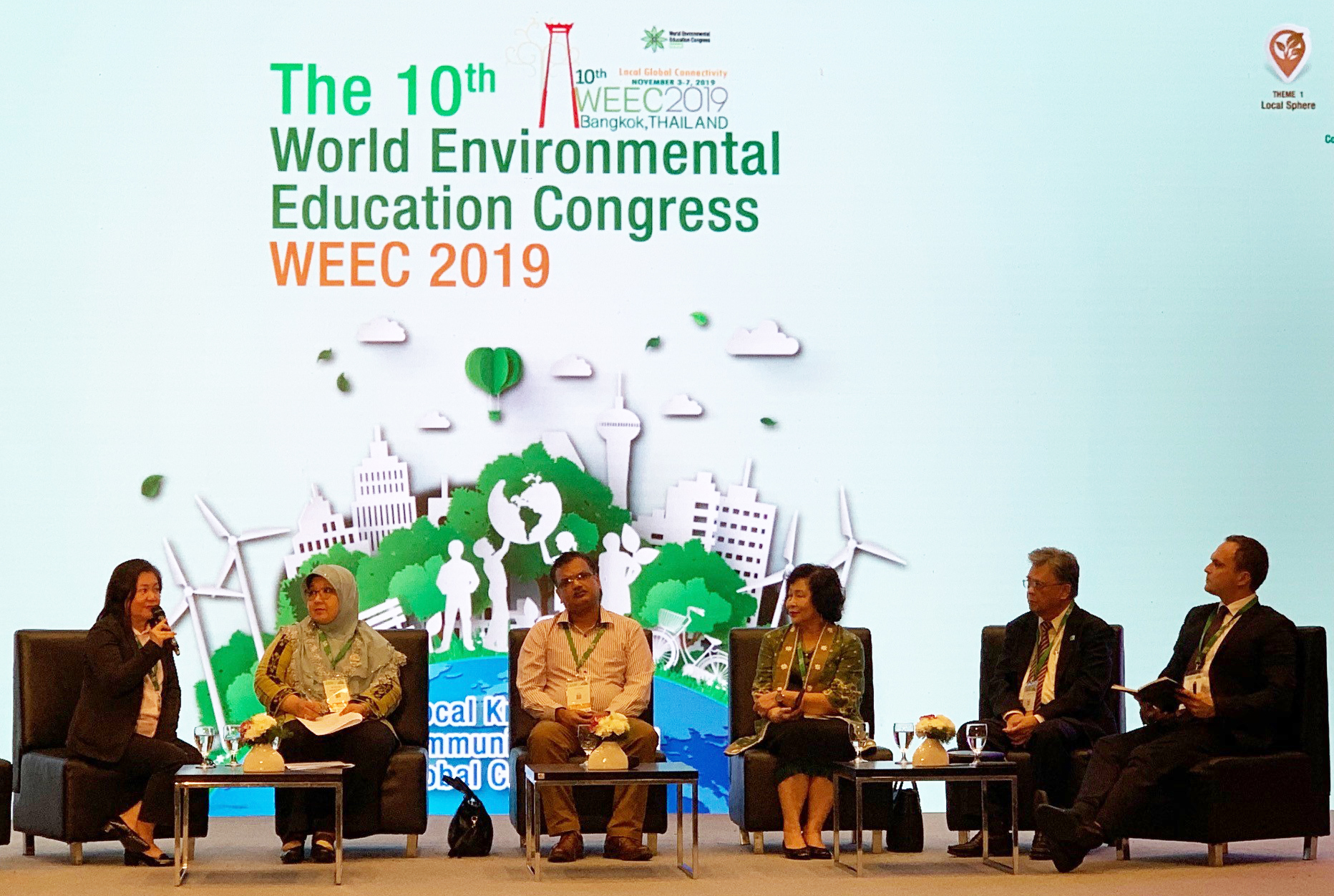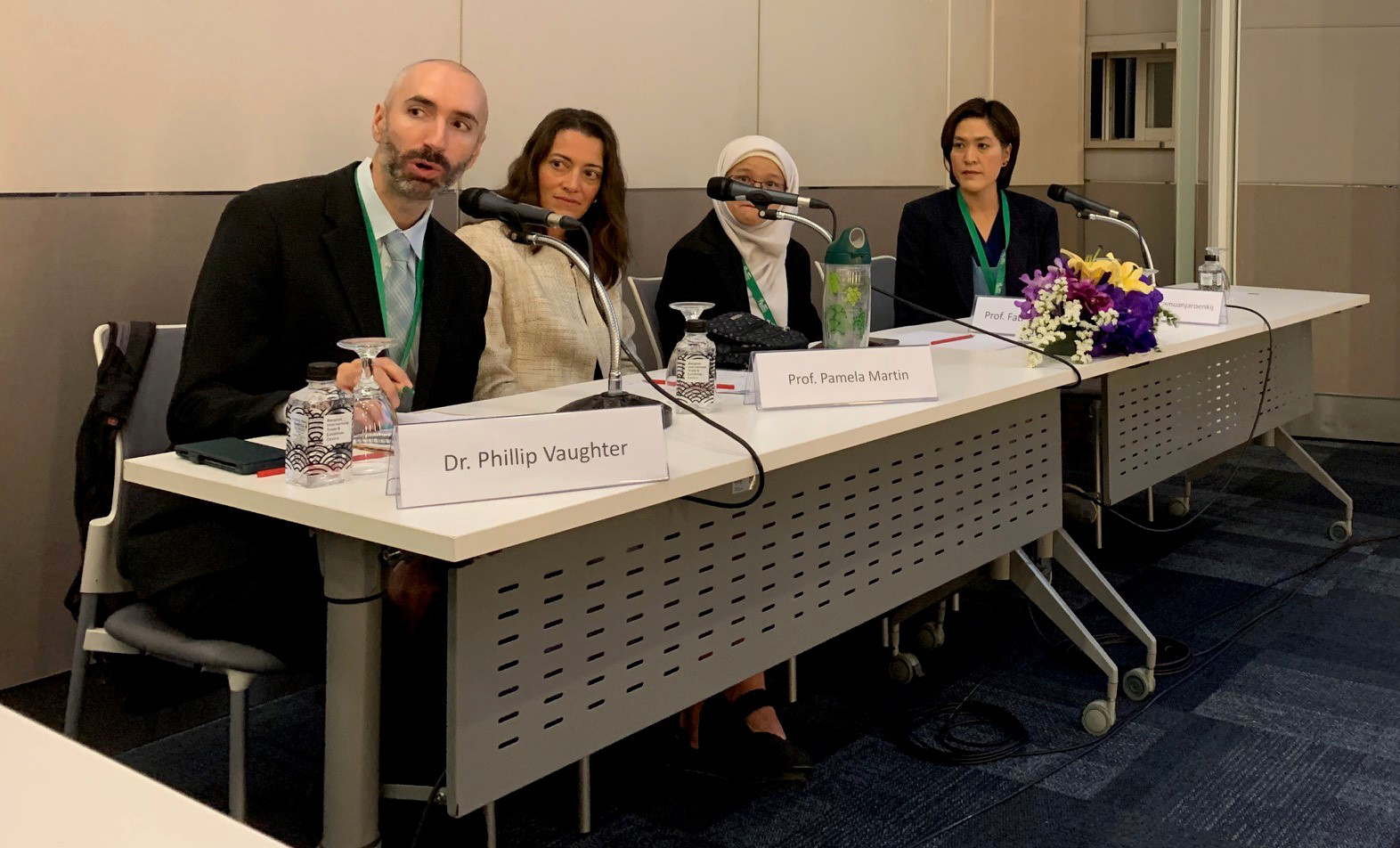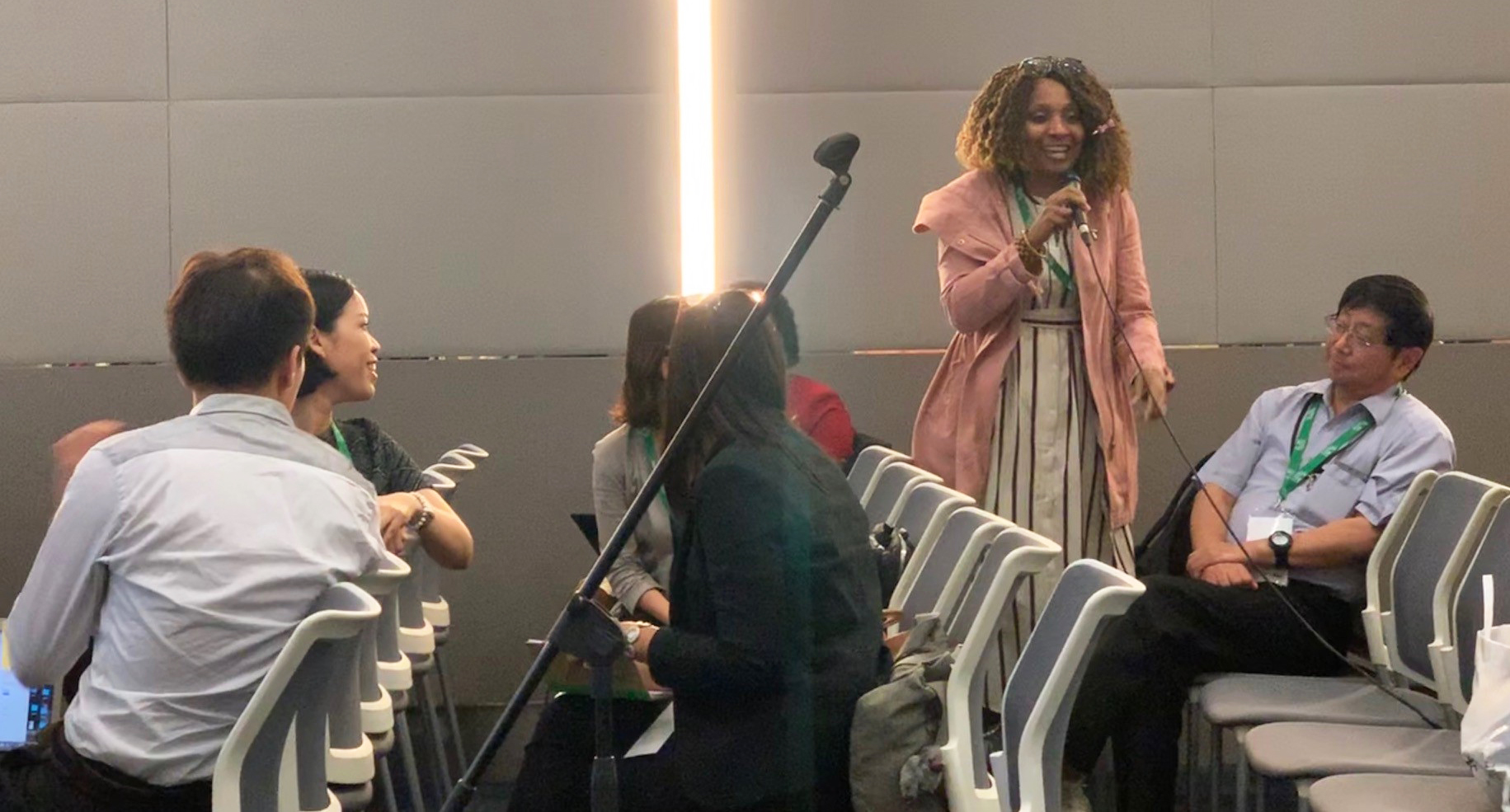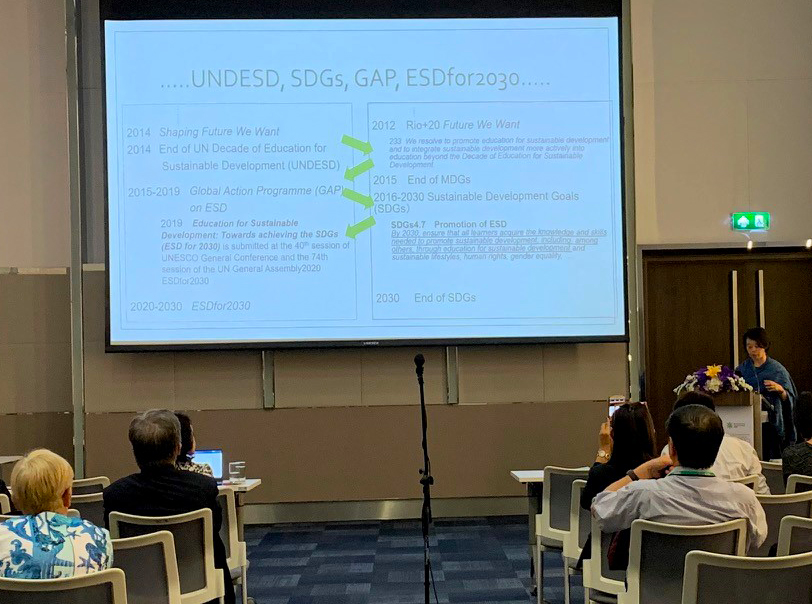UNU-IAS Runs Workshops on Climate Action in Education and Community Engagement in ESD at the 10th WEEC in Bangkok
 The 10th World Environmental Education Congress (WEEC) was held 3-7 November, 2019 in Bangkok, Thailand, under the theme 'Local Knowledge, Communication and Global Connectivity', and was jointly hosted by the Faculty of Environment, Kasetsart University, the Thailand Global Warming Academy under the patronage of the Nabhamitra Foundation, and the World Environmental Education Congress Network. This biannual event, and the first to be held in Asia, brought together delegates from across the globe, focusing on education for the environment and sustainability, with the aim to enhance local knowledge within the global spotlight in terms of environmental education.
The 10th World Environmental Education Congress (WEEC) was held 3-7 November, 2019 in Bangkok, Thailand, under the theme 'Local Knowledge, Communication and Global Connectivity', and was jointly hosted by the Faculty of Environment, Kasetsart University, the Thailand Global Warming Academy under the patronage of the Nabhamitra Foundation, and the World Environmental Education Congress Network. This biannual event, and the first to be held in Asia, brought together delegates from across the globe, focusing on education for the environment and sustainability, with the aim to enhance local knowledge within the global spotlight in terms of environmental education.
UNU-IAS ran a number of workshops at this year's event, along with co-hosting a side event with UNESCO Bangkok on 'Environmental Education and Assessment Practices in Asia' on 4 November, 2019. The side event featured a panel discussion in which representatives from universities in the Asia-Pacific region presented their environmental assessment initiatives – the University of Indonesia, a ProSPER.Net member, which hosts and leads the UI Green Metric World University Ranking, Siam University which takes part in the UI GreenMetric, Philippine Normal University Visayas which has been certified for ISO 14001 on environmental assessment, and the TERI School of Advanced Studies, a ProSPER.Net member, which implemented the Alternative University Appraisal initiated by ProSPER.Net.
 These presentations demonstrated how learning for environmental sustainability is triggered and enhanced for the campus community as a result of undertaking the assessment and through the subsequent discussions, drew insights into how higher education may be able to contribute effectively to the achievement of the SDGs.
These presentations demonstrated how learning for environmental sustainability is triggered and enhanced for the campus community as a result of undertaking the assessment and through the subsequent discussions, drew insights into how higher education may be able to contribute effectively to the achievement of the SDGs.
On 5 November, 2019, two workshops were held back-to-back; one on climate action in education, and one on community engagement in ESD. The first, titled 'The classroom, the city hall, the ivory tower, and the rising sea: Using a multi-stakeholder approach for education as a mechanism to implement local action on international climate policies', used the RCE (Regional Centres of Expertise on Education for Sustainable Development) model to examine how multi-stakeholder networks can provide a more coordinated and effective approach for educating communities about meaningful actions to take in relation to climate change mitigation and adaptation.
 After an introduction on research into climate action in education given by Dr. Philip Vaughter (UNU-IAS), presentations were given by Prof. Pamela Martin (RCE Georgetown, USA), Assoc. Prof. Dr. Fatin Aliah Phang (RCE Iskandar, Malaysia), and Prof. Anchasa Pramuanjaroenkij (RCE Sakon Nakhon, Thailand) on projects they have conducted in their RCEs within their cities to action behaviour change through education, and furthermore create policy recommendations for their city governments based on their experiences.
After an introduction on research into climate action in education given by Dr. Philip Vaughter (UNU-IAS), presentations were given by Prof. Pamela Martin (RCE Georgetown, USA), Assoc. Prof. Dr. Fatin Aliah Phang (RCE Iskandar, Malaysia), and Prof. Anchasa Pramuanjaroenkij (RCE Sakon Nakhon, Thailand) on projects they have conducted in their RCEs within their cities to action behaviour change through education, and furthermore create policy recommendations for their city governments based on their experiences.
RCE Georgetown's project catered to the vulnerable communities in the city susceptible to coastal flooding, whilst RCE Iskandar's project focused on transforming to a low-carbon society, by building awareness within schools with the help of local authorities. RCE Sakon Nakhon presented on their experience with disaster risk management, when the university acted as a distributor in the face of a disastrous flood.
A panel discussion that followed discussed topics such as populations and sectors which have been difficult to engage with, along with common misconceptions about climate change. The importance of learning for adults was also discussed, in particular about local, solution-oriented actions.
 Prof. Mario Tabucanon (UNU-IAS) reflected on harnessing the transformative power of education, which should be grounded in local actions, which is where RCEs can play a large role. He also spoke about the critical necessity of going from theory to practice in relation to climate action, and how universities and schools can work with surrounding communities to create curriculum around meaningful and contextualized local action.
Prof. Mario Tabucanon (UNU-IAS) reflected on harnessing the transformative power of education, which should be grounded in local actions, which is where RCEs can play a large role. He also spoke about the critical necessity of going from theory to practice in relation to climate action, and how universities and schools can work with surrounding communities to create curriculum around meaningful and contextualized local action.
The second workshop 'Community-based Environmental Education and Education for Sustainable Development' was collaboratively planned and designed by Ms. Fumiko Noguchi (UNU-IAS), Associate Professor Jose Roberto Guevara (RMIT University), and Professor Osamu Abe (Rikkyo University). Over 40 people from universities, local government, NGOs and youth discussed the challenges in localising SDGs in their community-based ESD practices and how to use SDGs to advance these practices, to overcome the issues of ESD and the SDGs being diluted when interpreted in local community contexts.
In identifying the challenges, participants spoke about the importance of beginning with an understanding and identification of local community problems in order to understand SDGs, along with the need to contextualise any learning, rather than 'learning the content'. Structures impeding the relevance of education feeding into policymaking were also discussed, as well as how the current education system could be transformed. Through the fruitful discussions, the workshop served to highlight how policies can be enriched through the insights from local communities for 2030 and beyond.
(Photo credits: UNU-IAS)


